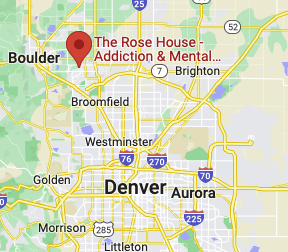Anxiety Symptoms in Women
Home » What We Treat » Mental Health » Anxiety Symptoms in Women
Anxiety feels like an unwelcome guest that overstays its welcome—a sentiment heard often from women who’ve faced it firsthand. Perhaps you’ve felt it too: the racing heart during a presentation or the sleepless nights replaying conversations in your mind. Anxiety isn’t just a fleeting moment of worry; it can be a persistent ache that that feels like an anxiety attack causing unrealistic worry. For women, who experience anxiety disorders, it often manifests in unique ways.
This article will go through these symptoms and guide you when the best time is to seek out help.
Key Takeaways
Anxiety symptoms in women are physical and emotional, racing heart, gut issues, restlessness and and overwhelming panic, highlighting the importance of early recognition and intervention.
It’s important to distinguish between normal anxiety and anxiety disorders, if constant and excessive worry interferes with with a womans life, we suggest talking to a professional and potentially get treatment.
Treatment for anxiety disorders in women usually involves a combination of therapy, medication like SSRIs and complementary therapies like mindfulness techniques, with individual approaches needed.
What Is Anxiety, Really?
Anxiety is a natural response to stress. It’s your body’s way of preparing for a challenge, releasing adrenaline to help you react quickly. While a certain level of anxiety is normal and even helpful, chronic anxiety crosses the line, becoming a debilitating force.
Women are statistically more likely than men to experience anxiety disorders, such as generalized anxiety disorder (GAD), panic disorder, and social anxiety disorder.
But what makes anxiety symptoms in women distinct?
Recognizing the Symptoms of Anxiety
Anxiety comes in many forms and for women it can be extra challenging. Physical symptoms like a racing heart, sweaty palms and trouble focusing can be uncomfortable and disruptive. Women may also experience gut issues like nausea or diarrhea, another layer of misery.
Traumatic events from PTSD (post traumatic stress disorder) often are a part of most anxiety disorders and can lead to restlessness and a feeling of being on edge. Many women feel overwhelmed with impending doom or panic. These feelings can continue to escalate if not addressed. Stress management techniques and early intervention can prevent escalation into full blown anxiety disorders.
At The Rose House in Colorado, women can find a safe space that’s tailored to their needs. The Rose House can treat anxiety disorders in a women only environment that’s comfortable and supportive so women can get the care and attention they need to address their severe anxiety and mental health.

Anxiety symptoms don’t always appear as textbook definitions; they can be subtle, complex, and deeply personal.
Common physical, emotional, and behavioral symptoms include:
Physical Symptoms of Anxiety

Persistent fatigue, even after rest
Muscle tension and unexplained aches
Shortness of breath, chest pain or a racing heart
Sleep disturbances, including insomnia
Digestive issues like nausea or irritable bowel syndrome (IBS)
Weight loss or weight gain
Emotional Symptoms of Anxiety
Constant worry, often disproportionate to the situation
Irritability or a sense of impending doom
Difficulty concentrating or making decisions
Feeling emotionally “on edge”
Behavioral Symptoms of Anxiety
Avoiding situations that trigger anxiety disorders or excessive anxiety
Over-preparation or perfectionism
Seeking constant reassurance from others
How to Tell the Difference Between Normal Anxiety and an Anxiety Disorder
Feeling anxious in stressful situations is normal, but normal anxiety usually resolves once the stressful event passes. It can even be helpful, helping you notice danger and focus.
Anxiety disorders, on the other hand, involve excessive and persistent worry that interferes functioning. For example Generalized Anxiety Disorder (GAD) is when you worry about everyday things even when there’s no reason to. If symptoms persist over time and interfere with daily life it may be an anxiety disorder that needs professional help and can lead to developing anxiety disorders.
Understanding the difference between normal anxiety and an anxiety disorder is helpful when wondering if you need help. Constant and overwhelming anxiety needs help. A professional evaluation can tell you if you have an anxiety disorder and what treatment would work best.
Types of Anxiety Disorders that Affect Women
Anxiety disorders are many and each has its own symptoms and challenges. The most common in women are Generalized Anxiety Disorder (GAD), Panic Disorder and Social Anxiety Disorder. These are serious mental health disorders that interfere with daily activities.
Understanding the type of and how a woman can develop anxiety disorders is helpful. Each type has its own symptoms and requires different management. Below we break down GAD, Panic Disorder and Social Anxiety Disorder.
Generalized Anxiety Disorder (GAD)
Generalized Anxiety Disorder (GAD) is characterized by persistent and excessive worry about various things in a persons life and the world. Women with GAD experience uncontrolled worry that causes significant distress. This constant anxiety can interfere with daily functioning and overall well-being.
Persistent and distressing anxiety needs professional help for GAD. Early intervention can manage symptoms and improve quality of life and prevent the condition from getting worse.
Panic Disorder
Panic disorder is repeated repeated panic attacks and episodes of intense fear when there is no real danger. These attacks can be overwhelming and scary and can cause symptoms like a rapid heartbeat, sweating, and feelings of choking.
During panic attacks, people may fear losing control and that adds to the overall distress. Recognizing these symptoms and getting treatment is helpful for managing panic disorder.
Social Anxiety Disorder
Social anxiety disorder also known as social phobia is intense fear of social situations. Women with social anxiety fear being judged or evaluated negatively in social situations which can impact daily interactions. This fear can lead to avoidance of social situations and that can worsen the condition..
Addressing social anxiety is important for social functioning and overall quality living.
Causes and Risk Factors for Anxiety in Women
Anxiety disorders in women can be caused by many factors. A family history of anxiety disorders increases risk. Hormonal changes related to estrogen may also contribute to anxiety disorders in women. Estrogen fluctuations during the menstrual cycle and postpartum can trigger anxiety symptoms. Traumatic experiences in childhood can also increase the likelihood of developing anxiety disorders later in life.
Diagnosis of Anxiety Disorders
Diagnosis of anxiety disorders involves a thorough assessment including symptom assessment, medical history and physical examination.
Health professionals may do blood tests to rule out other medical conditions that can cause anxiety symptoms. They will also ask about current medications as some can cause anxiety. If no physical cause is found a psychological evaluation is done to diagnose anxiety disorders.
A team of medical professionals may be involved if anxiety is related to other health conditions to get the underlying causes right.
Treatment Options for Anxiety in Women
Treatment options for anxiety disorders varies depending on the type of disorder and personal health history. Counselling and medications are common treatments for anxiety disorders and work with your doctor to find what works best for you.
The Rose House in Colorado offers inpatient care for anxiety disorders in a women only facility, a safe and nurturing environment.

Cognitive Behavioral Therapy (CBT)
Cognitive-behavioral therapy (CBT) helps change thinking patterns around fears and includes strategies like relaxation therapy and problem-solving.
Talking to a psychiatrist, psychologist, social worker or counselor can provide the support for CBT which is effective for anxiety and overall mental health.
Medications
Medications like selective serotonin reuptake inhibitors (SSRIs) and benzodiazepines are part of anxiety disorder treatment and consult with your doctor before starting any medication. The Rose House believes that anxiety disorders can be managed and treated with quality therapy, skills building and mild medications. We do not use benzodiazepines to treat anxiety disorders at The Rose House, but we will work with women to safely come off of these medications if they have experienced detrimental effects from the use of benzos to treat their anxiety.
If side effects occur adjust the treatment plan with your healthcare provider. Some SSRIs are safe to take while breastfeeding which is important for nursing mothers.
Complementary Therapies
Yoga and meditation can help with anxiety, relaxation and mindfulness to counteract anxious thoughts. Adding these to traditional treatments can improve overall health.
CBT techniques like exposure therapy and structured problem solving can also help with anxiety, more tools to cope.
Summary

Treatment options for anxiety disorders vary based on the type of anxiety disorder. Anxiety disorders often need to be treated by licensed mental health professionals like the staff at The Rose House. A residential program specifically focused on treating the root causes of anxiety, such as trauma, are ideal for women with mental health conditions and anxiety disorders.
The Rose House follows best practices and specializes in treating women with anxiety, obsessive compulsive disorder, separation anxiety disorder, GAD, panic disorder, depression as well as other disorders and addictions. Women choose The Rose House because we are focused on working through the underlying causes of anxiety disorders versus just symptom management.
For those needing help, consider The Rose House, where expert staff provides compassionate care to help women regain control over their lives. Your journey to peace and balance can start today.
Frequently Asked Questions
Diagnosing anxiety disorders in women involves a comprehensive evaluation by a mental health professional. They will conduct a detailed assessment of your symptoms, medical history, and any potential triggers. It’s crucial to rule out other medical conditions that might mimic anxiety symptoms. To identify specific anxiety disorders, such as generalized anxiety disorder or panic disorder, a deeper psychological evaluation might be needed. Communication is essential to ensure an accurate diagnosis and effective treatment plan meets your needs.
The 3 3 3 rule is a simple technique to help manage anxiety and ground yourself in the present moment. For women experiencing anxiety, it can be particularly beneficial. Start by looking around and naming three things you see. Then, listen and identify three sounds you hear. Finally, move three parts of your body, such as your fingers, toes, or shoulders. This method can help interrupt anxious thoughts and bring a sense of calm, making it a useful tool for women dealing with anxiety symptoms.
Recognizing the signs of anxiety is the first step when wondering if you need help. For women, these signs may include:
Persistent worry that feels overwhelming and difficult to control.
Physical symptoms like muscle tension, rapid heartbeat, or chest pain.
Avoidance of situations that trigger anxiety, impacting daily life.
Irritability or feeling on edge without a clear reason or understanding why you feel this way.
Difficulty concentrating or making decisions due to excessive worry.
If you recognize these signs and they affect you throughout the day, it may be time to consult a mental health professional for support and guidance.


